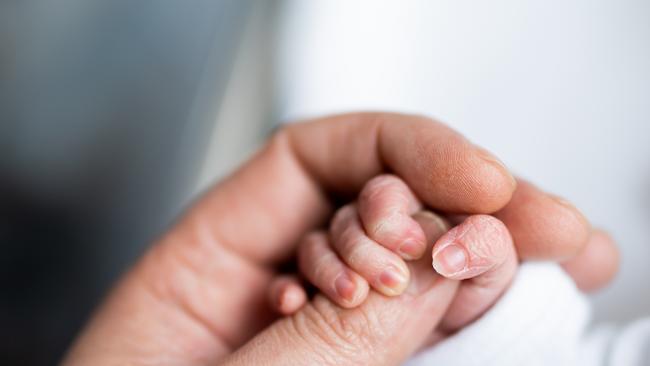Murdoch Children’s Research Institute-led drug’s breakthrough SIDS discovery
World-first dwarfism treatment could more than halve children’s sudden infant death syndrome risk, Melbourne-led study reveals.

Victoria
Don't miss out on the headlines from Victoria. Followed categories will be added to My News.
A Melbourne-led trial has paved the way for the world’s first treatment for the most common form of dwarfism, in a “watershed” moment that could more than halve children’s risk of sudden infant death syndrome.
Results showing the “breakthrough” drug vosoritide’s lifesaving impacts on complications of achondroplasia prompted multiple countries – including Australia – to offer the drug to children from birth.
That global study, led by the Murdoch Children’s Research Institute and published in a top pediatrics journal overnight, was the first to show the drug from sponsor Biomarin Pharmaceutical was safe and effective in children under five.
Shared in the Lancet Child & Adolescent Health journal, it found patients who received the drug had an annual growth rate “almost double” the placebo group, with the daily injections boosting bone growth and the size of a vital hole in the skull for the spinal cord.
The MCRI study lead Ravi Savarirayan said this was significant because they suspect the narrowing of this hole – the foramen magnum – is the reason why preschoolers with achondroplasia are 50 times more likely to die a sudden death than other children.
“We know that the cause of death is compression,” Melbourne University Professor Savarirayan said.
“If we’ve almost doubled the foramen magnum size, wouldn’t it be great if we halved the sudden death risk.”

Prof Savarirayan said further long-term studies were needed to confirm the impact of increasing the foramen magnum but — after more than 15 years of research — he hoped he now won’t “ever have to ring a family to explain why their kid died suddenly in the car on the way to the supermarket”.
“I started this because I unfortunately had two children I was looking after suddenly die before they were five,” he said.
“(The drug) is now approved in 46 countries around the world.
“You dream you could do something like this once in your lifetime.”
He said the study, which involved 75 children from Australia, US, Japan and UK, suggested the drug could help them avoid neuro and facial surgery and corrective orthodontic treatments, reduce sleep apnoea and increase sinus and facial volume growth.
The MCRI led the previous study involving older children which showed similar benefits and Prof Savarirayan said the impact on babies treated from birth — the earliest in this latest study was 4-months-old — could be even greater.
Speaking from New York on Tuesday, where he was chairing a committee to help the drug’s international implementation, Prof Savarirayan said this was an incredibly proud day for Australia, who both led the trials and – after seeing the study’s early results earlier this year – subsidised the up to $330,000 a year drug.
“This is a real watershed moment,” he said.
He said the “lifesaving” drug was about “health, not height”, after earlier trials prompted mixed reactions in the short statured community, with some members concerned the drug was trying to “eradicate” dwarfism.
Daisy Broadway’s son Casper Ebbels was diagnosed with achondroplasia shortly after he was born, and has received daily vosoritide injections since enrolling in the trial at just 5-months old.
The Melbourne mum said the medication had “absolutely” helped Casper, who has avoided many achondroplasia complications common among his peers and grown into a “fiercely independent” 4-year-old.
“Casper has no spinal compression, his limbs are more proportionate and his legs are less bowed,” she said.
“He’s able to manage a lot of aspects of his daily life that he might not have been able to.
“We’re really lucky.”
She said there was an “immense sense of pride, happiness and relief” at seeing the results, and knowing they contributed to a study which has now helped other children.




